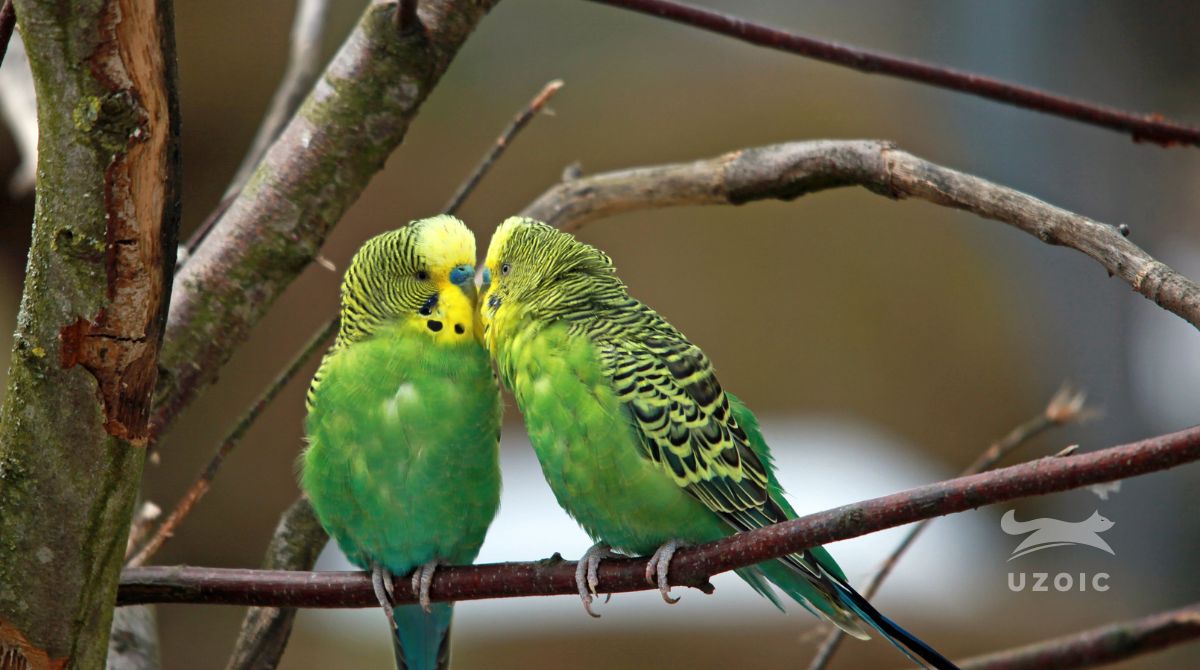Budgerigars, commonly known as budgies or parakeets, are small and colorful birds that are popular pets around the world. One intriguing behavior that budgie owners may observe is their tendency to sleep in seemingly strange positions.
While it may appear unusual to us, there are reasons behind these sleeping behaviors. In this article, we will explore the various factors that contribute to budgies sleeping in unconventional positions, shedding light on their avian sleep behavior.
- Comfort and Security: Budgies, like other birds, have unique physical adaptations that allow them to sleep in positions that might seem awkward to us. One common position is sleeping on one leg. This posture allows budgies to conserve body heat by tucking one leg close to their body, minimizing heat loss through their legs. Additionally, perching on one leg can provide stability and a sense of security, as it allows them to quickly respond to any potential threats.
- Resting the Feet: Budgies spend a significant portion of their day perched on their feet, using their feet for various activities such as climbing, playing, and eating. By adopting unconventional sleeping positions, such as resting their body on a perch or clinging to the cage bars, budgies give their feet a break from the constant pressure and strain of supporting their body weight. These positions provide temporary relief and help prevent fatigue and discomfort in their feet.
- Regulating Body Temperature: Birds, including budgies, have a higher body temperature than humans. Sleeping in different positions helps budgies regulate their body temperature more effectively. By stretching out their wings or spreading their feathers, they increase air circulation around their bodies, helping to dissipate excess heat and maintain a comfortable temperature. Similarly, tucking their head under their wing or resting it on their back helps them conserve body heat during colder periods.
- Flexibility and Adaptability: Budgies are highly adaptable creatures, capable of adjusting their behavior to suit their environment. In the wild, budgies sleep in tree branches or nest boxes, where they can choose a position that provides safety, comfort, and protection from predators. When kept as pets, budgies may not have the same options available to them, so they adapt and make use of the resources provided within their cage or aviary. This adaptability allows them to find positions that they feel most comfortable and secure in.
- Natural Instincts: Budgies, like their wild counterparts, have inherited instincts that influence their sleep behavior. In the wild, budgies often sleep in groups, providing safety in numbers and facilitating social interaction. When kept as solitary pets, budgies may exhibit behaviors that mimic those of a flock, such as sleeping in close proximity to toys, mirrors, or other objects within their cage. This behavior can provide a sense of companionship and security, even when they are alone.
- Sleep Cycle Variations: Birds have different sleep patterns compared to mammals. While mammals typically have consolidated periods of sleep, birds have a sleep pattern known as “polyphasic sleep.” This means that they have multiple short periods of sleep throughout the day and night. These shorter sleep cycles allow budgies to rest and conserve energy while remaining alert to their surroundings. As a result, they may assume various sleeping positions during these brief periods of rest.
Budgies sleeping in strange positions is a natural and adaptive behavior influenced by their anatomy, instincts, and the environments they inhabit.
These unconventional sleeping postures, such as sleeping on one leg, perching in unusual positions, or spreading their feathers, serve specific purposes, including comfort, thermoregulation, and security.
As pet owners, it is essential to understand and appreciate these avian sleep behaviors, as they reflect the natural instincts and adaptations of our feathered companions.
By providing a safe and stimulating environment, we can support budgies in exhibiting their natural sleep behaviors and ensure they have the opportunity to rest and rejuvenate effectively.


